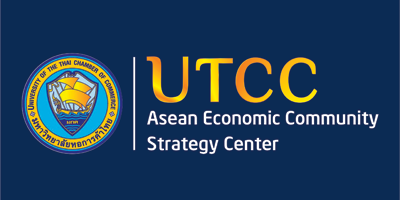Myanmar: Inter-related challenges for SMEs and financial sector
When developing a country’s economy, the success of small and medium-sized enterprises (SMEs) is a vital part and should be a priority for any administration which is keen to maintain prosperity.
In order for strong businesses to emerge and compete with other regional enterprises, enterprises will need to grow and develop. For that to happen, SMEs need to have an environment where they can develop, as well as access to finance and support.
Economists and businessmen alike have pointed to the fact that Myanmar needs to focus on export so that the economy can grow.
If the country were to prioritise that, then without doubt SMEs should be strengthened, said U Kyaw Win, Union Minister for the Ministry of Planning and Finance.
Additionally, the government would also provide support for SMEs to flourish, he made the promise during the investment forum held in Nay Pyi Taw on June 6.
However, many challenges remain for those enterprises seeking to grow steadily. Obstacles include the difficulty in acquiring land or capital assets, the lack of basic infrastructure such as stable power supply, as well as the lack of technological innovation.
These predicaments cannot be easily resolved by businesses on their own, the local businesses said.
Germany, for example, has mainly relied on its SMEs for economic growth.
As Myanmar wants to expand its economy, it should embrace the policies which will create a friendly and supportive context for SMEs to develop. Nonetheless, they are barriers for them to overcome.
Economists have pointed out that the biggest hurdle in the development of SMEs is the difficulty to efficiently and smoothly acquire capital assets. Furthermore, because of this problem, it affects the expansion of enterprises, and there are vulnerabilities in competition between individual enterprises.
“In the past, we were provided almost no financial support such as bank loans. But these years, we’ve heard that banks and the government would provide such support.
“As long as businesses are still out of reach of low-interest loans which is the most useful way to seek capital assets, they have to take the long way towards success,” said U Hnin Oo, Myanmar Fishery Federation vice chair.
At the investment forum, U Kyaw Win stated that Myanmar faces a trade deficit so the country has to tackle this problem. When it comes to reducing deficit, it is necessary to develop import substitution while emphasising the need to boost the country’s manufacturing sector, he added. To implement that objective, he pledged that the ministry will provide all things which can facilitate the development of SMEs.
“When we try to reduce trade deficits, first of all, we have to consider import substitution. To do it, we have to approach the manufacturing sector and we have look after SMEs.
“We have to support them with everything that they need such as land, financial or technical support, and management. It is a first step towards the development of SMEs so that we can compete within the ASEAN Economic Community,” he explained.
However, senior officials from several ministries and domestic banks said that providing financial access to SMEs is a huge challenge for them.
A lot of challenges still remain for Myanmar’s financial sector, said Dr Sandar Oo, managing director of Myanma Insurance, during the event.
Myanmar’s monetary and investment market has yet to develop and no official organisation which manages land ownership has been set up.
Interest rates are still high. Banks need to improve their investment portfolio and, at the same time, their financial rules and regulations have to develop.
The banking market needs to be strong enough for the facilitation of interconnection between banks. The country needs to develop a flexible payment system and the people also need to improve their knowledge of finance-related matters, says Dr Sandar Oo.
Currently, banks are experiencing difficulties in assessing loan applications.
“We are trying to issue loans with collateral and also without.
“To do so, our information base and tax system must be strong and transparent,” said U Thein Zaw Tun, managing director from CB Bank.
“With data and information from the land registry, we can easily know the names of the owners of the land and appraise the value of the properties. If so, a loan system will be quicker than ever,” he added.
Source: http://www.mmtimes.com/index.php/business/26467-inter-related-challenges-for-smes-and-financial-sector.html


 Thailand
Thailand




